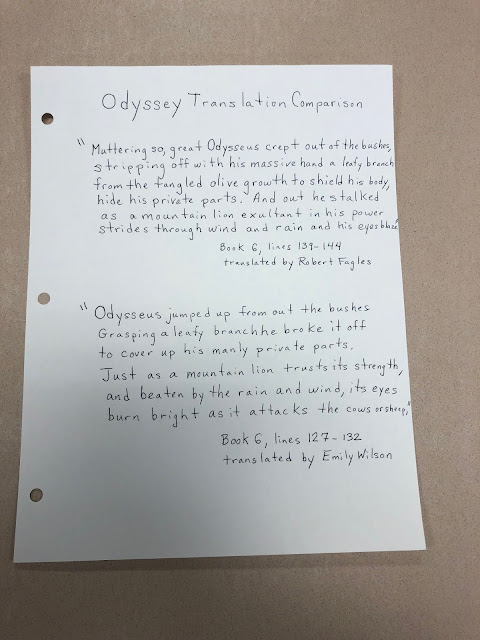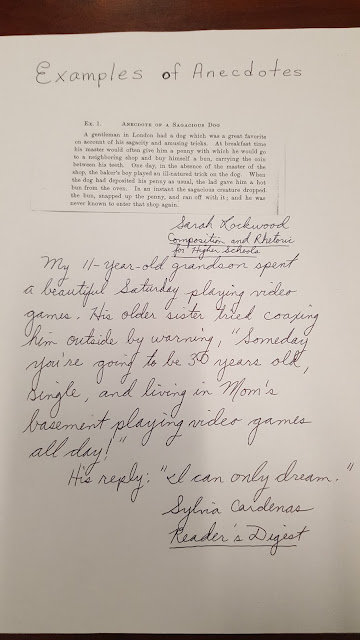Membean Vocabulary Drills: 10 minutes
Students continued reading Tales from the Odyssey.
Homework: Read over the following elements of an epic poem:
Epic poems exist in cultures around the world, often
having roots in preliterate times.
Essential
Characteristics
· Long
narrative poem
o
The work may be paraphrased into prose,
but it began in verse.
· Omniscient
narrator
o
The speaker of the poem appears to know
about all the characters thoughts and feelings.
· Panoramic
setting
o
The story covers events in a vast
geographic region, even taking in the known world or universe.
· Hero
o
The protagonist of the story gains the
audience’s admiration through great deeds.
o
The hero typically has a quest and goes on
a journey to achieve that goal.
o
The hero is someone of national or
international importance.
· Supernatural
Involvement
o
Gods or other supernatural beings
participate in the action or take an active interest.
· Elevated
Style
o
The speaker uses
§ formal
language, not conversational
§ serious
and objective tone (attitude toward the characters and the action)
§ great
detail
Common
Story-telling Conventions
· Invocation—the
poet-narrator asks for supernatural help in telling the story.
· medias res—the
story begins in the middle of the action.
· Long
speeches—main characters often speak at length, revealing their traits.
· Meter—the
poet uses a set rhythmic pattern to aid in remembering the story
· Figurative
language
o
Epic similes—long comparisons made over
many lines.
o
Epithets--an adjective or descriptive phrase expressing a quality
characteristic of the person or thing mentioned; often repeated to aid memory
or complete meter




